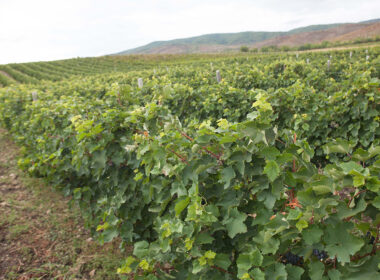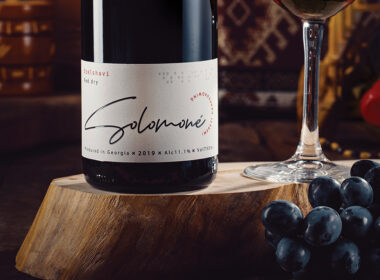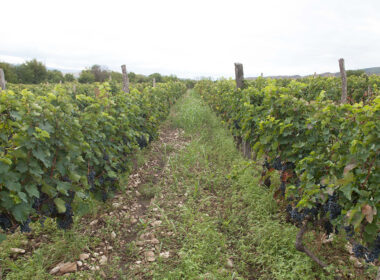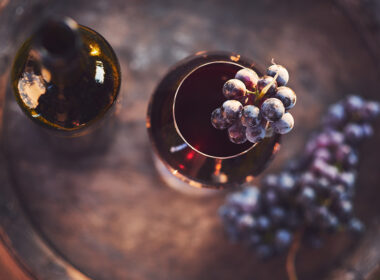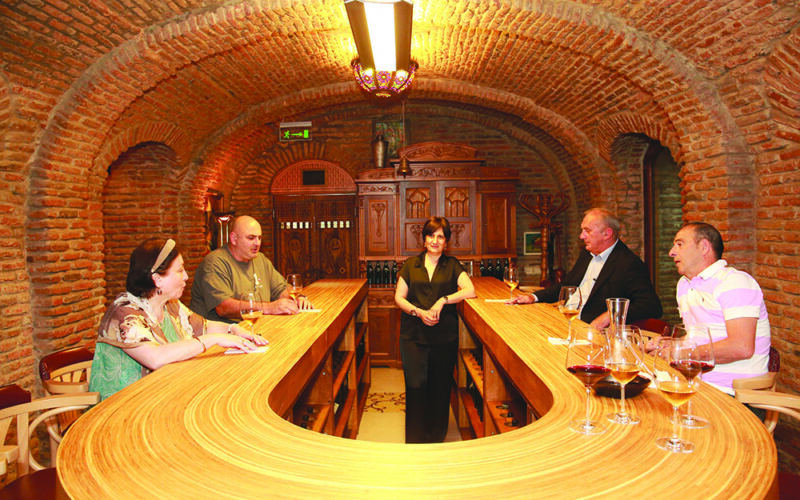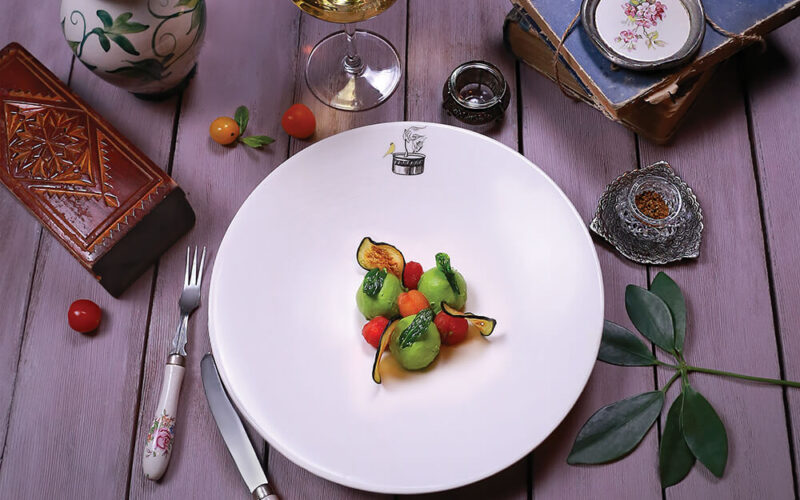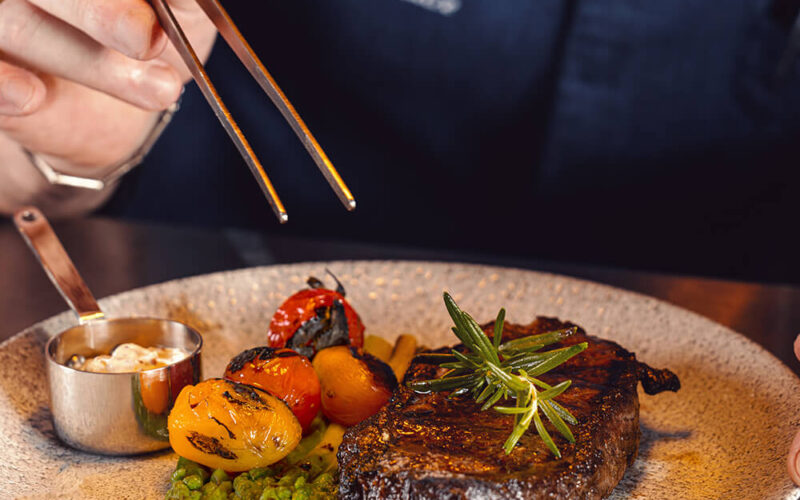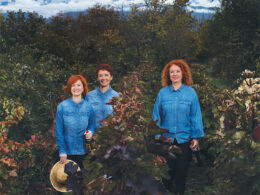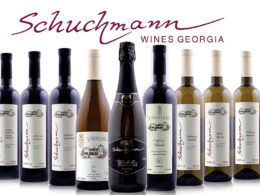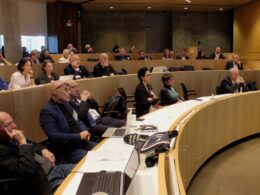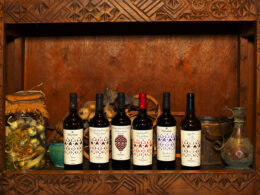Homeland of Wine Magazine
“In wine, content is key. We have to pay more attention to the content than packaging. We have to look outside the box and be independent in our decisions.”
“When discussing bio and natural winemaking, we know that preserving vineyard, grape, and wine ecosystems, biodiversity, natural biological cycles, and biological processes is critical. Producers of bio-wine refrain from using external additives and prefer to let the natural processes take over. As is the case with producing high-quality wine, bio-wine producers aim to limit their involvement in the process and concentrate on preserving the integrity of the grape. According to today’s legislature, wine has to meet specific criteria to be labeled as organic. For instance, it has to be produced solely from organic grapes; all of the ingredients, whether sweetness from grapes, concentrated sweetness, sugar (in countries where it is allowed), alcohol (in fortified wines), have to be organic; the use of genetically modified microorganisms in biological processes is prohibited. It is also forbidden to use substances and additives derived from genetically modified organisms; during wine processing, natural, mechanical, or physical methods, instead of chemical, is preferable; the use of additives permitted in winemaking is allowed. However, they should only be administered as a necessity”. – Giorgi Samanishvili
Irma Chanturia | Wine laboratory director: To support Georgian wine today, we have to popularise small wineries. This is a new niche in our industry. Small wineries were the ones that introduced modern technologies in Georgian winemaking, and on top of supporting traditional viticulture-winemaking, they integrate modern approaches in their operations with traditions so skilfully that the final product they deliver is astonishing.
We discuss bio and natural winemaking with representatives of several wineries:
Papary Valley – Nukri Kurdadze
Jakeli wines – Zaza Jakeli
Marani Casreli – Misha Dolidze
Khashmi “Gıda” Wine – Tamila Robakidze
First and foremost, I would like to introduce our debutant – “Gida” winery in Khashmi. They are concentrated on quality and produce exceptional quality wines using traditional methods.

Tamila Robakidze: Our family has a long history of winemaking. I remember my father (Amiran Robakidze) saying that wine is not just any common liquid – it is our nation’s history. These words are imprinted in my memory and inevitably influence my work. A few years ago, Khashmi was registered as the 18th PDO. We owned lands here but did not cultivate grapes. So first, we started by building a cellar, a winery. We carefully chose farmers that grew grape that fully met our requirements. We employ a professional viticulturist and winemaker who consults and advises us to buy the best quality grape, on par with European Union standards. Our wine cellar can hold 35 tonnes of wine. We pride ourselves on producing premium quality wine. The cellar also serves as a tourist attraction because we want to introduce quality wine to many wine lovers and connoisseurs.
Irma Chanturia: That is precisely the direction we have taken: popularising high-quality wines from small wineries. Both the government and private sector are making considerable efforts to develop this niche and make high-quality qvevri wines accessible to the world.
Misha Dolidze: Anytime I meet my fellow winemakers for the first time, I try to understand their philosophy on wine and its production. This is a fascinating subject for me. It is the philosophy that united my friends and me to create “Marani Casreli.” Our approach is based on several principles that we also use in our primary profession – medicine. These are 1. Do not harm the consumer that drinks your wine; 2. Producer’s and consumer’s autonomy and independence of decisions. In wine, content is key. We have to pay more attention to the content than packaging. We chose this approach for our winery – not being influenced by any one direction (bio, biodynamic, natural). We try for our wine to be naturally natural.
This vision united us around wine and the idea of “Casreli.” That’s what we built our Corporate Social Responsibility element on. We try to share the knowledge and experience we have acquired with our community (Vachnadziani Village, where “Casreli” vineyards and cellar is located) so young winemakers can better care for their cellars and qvevri, implement hygienic conditions.
At the same time, we are gladly sharing the rare grape varieties we own, so winemakers and consumers have a chance to get to know a wide variety of tastes and aromas. Besides supporting the overall development of the market, this approach increases the competitive advantage of our region. Our wine serves as a foundation for building more things that we love.
Irma Chanturia: There is a significant demand for our traditional wine in the world today. There are also certain expectations, especially after the International Organisation of Vine and Wine added amber wine to its list. Small wineries know very well to meet these expectations, support each other, and maintain their quality and price. After all, this wine is targeted towards a higher segment. It is “hand-made” for particular consumers. There is no competition among small wineries. They are all mostly concentrating on the quality of each others wines. Success of one is the success of all. Papary Valley and Mr. Nukri Kurdadze is a great example of such a winery. They are our special partners, with exceptional and particular wines. The grape they cultivate is very high in sugar. The alcohol content of the final product exceeds 16%. I think the terroir these grapes are grown on, and the vineyards themselves deserve a separate study. It is astonishing how natural yeasts can carry through the whole fermentation process. Mr. Kurdadze, as a physicist and winemaker, you play a massive role in this regard.
Nukri Kurdadze: As you know, I worked in the Eastern branch of Pernod Ricard for 15 years. They are a global player in the spirits business. I had the honor of working with wines from different countries and serve as their ambassador. I should say that the total volume of production of these global bands vastly exceeds the total potential of Georgian wines. I visited Georgia from time to time during those years, and at the beginning of 2000, I discovered natural wines. This was sort of a moment of truth for me. I had thought about making wine myself for many years, but I understood what kind of wine I wanted to make with the discovery of natural wines. I clearly understood that the wines I worked on and helped popularise were utterly different from qvevri and natural wines. I was astonished and excited at the same time. I also remember realizing what real Saperavi should be when I got introduced to Zaza Jakeli’s Saperavi.
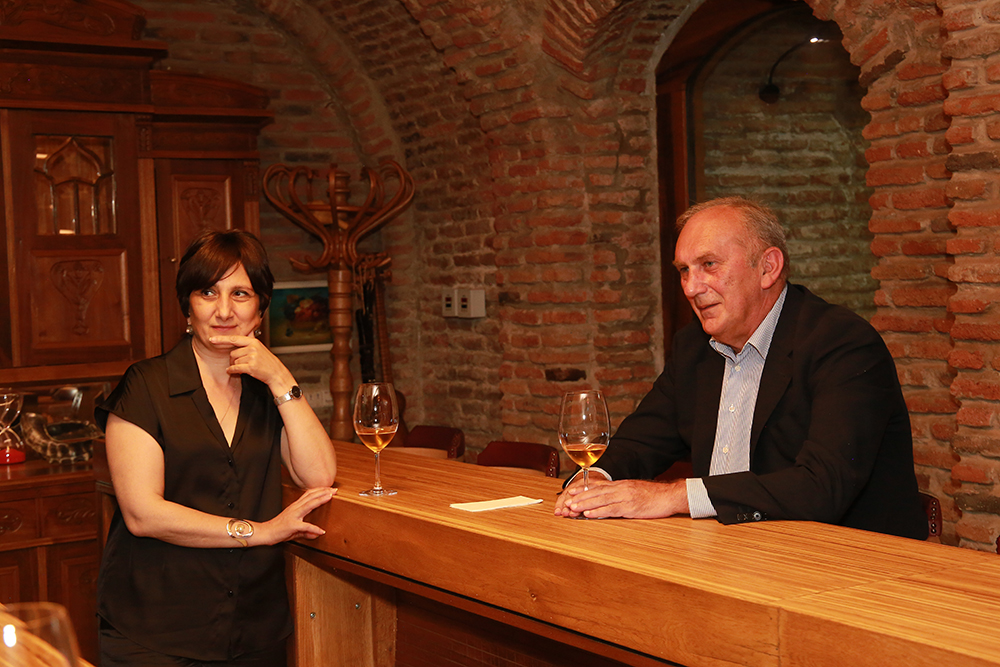
To realize our idea of natural wines, we started looking for vineyards. When I tried wine samples from Papari Valley, I intuitively knew that this was where I could start doing what I wanted. While it is true that winemakers and viticulturists have a lot in common, they still (and this is especially true for smaller producers) have their ways and individual visions. We wouldn’t have such variety if this weren’t the case. When we bought Papari Valley vineyards in Akhasheni, we sadly realized that we would not make bio and naturals wines from these grapes. So, we took one of the most painful but ultimately right decisions to cut down all of the old vines, which, incidentally, did not hold varietal integrity. People were shocked because we practically destroyed a running business. We could have been producing “Akhasheni,” “Mukuzani,” “Gurjaani” wines, which we could easily sell on the Russian market since it was open at the time. But we chose otherwise – we started growing vine on certified French rootstocks. At first, we did not even think about making wine because we were completely focused on this process, which lasted for ten years. In 2008, I made my first experimental wine (by the way, I have it saved, and it is in good shape). We built the cellar in 2016 when we were ready to make the wine. Today, we are an official bio-producer and own a total area of 9.5 hectares of bio-vineyards.
For us, “bio direction” is not a panacea. I’ve tasted a lot of bio wines that did not impress me. At the same time, I’ve tried well-groomed, non-bio wines that I appreciated. I don’t think winemakers should place themselves in a box. Yes, we have a bio certificate, we use biodynamic and bio and natural winemaking technologies, and we strive to make only quality wines, but I will not let dogma or preconceived notions define my wine. If it requires sulfur, I will use it, and it will stay within the bio standards; if it doesn’t need it – it will meet the standards of natural wines. What I absolutely won’t do is use yeast and move to the industrial wine category. The natural character of the wine is sacred for me.
If you put enough energy into the vineyards, the wine does not require much effort – and that is the formula.
I want to go back to Ms. Chanturia mentioning modern technologies in winemaking, which we have contributed a great deal to. Our philosophy is to bring innovative elements into this craft without distorting the ideology and the concept of qvevri wine.
Irma Chanturia: Our long-time partner, Zaza Jakeli, was one of the first family-owned wineries that produced quality wines from the very start and is still distinguished by its individuality. There is a constantly high demand for “Jakeli” wines.
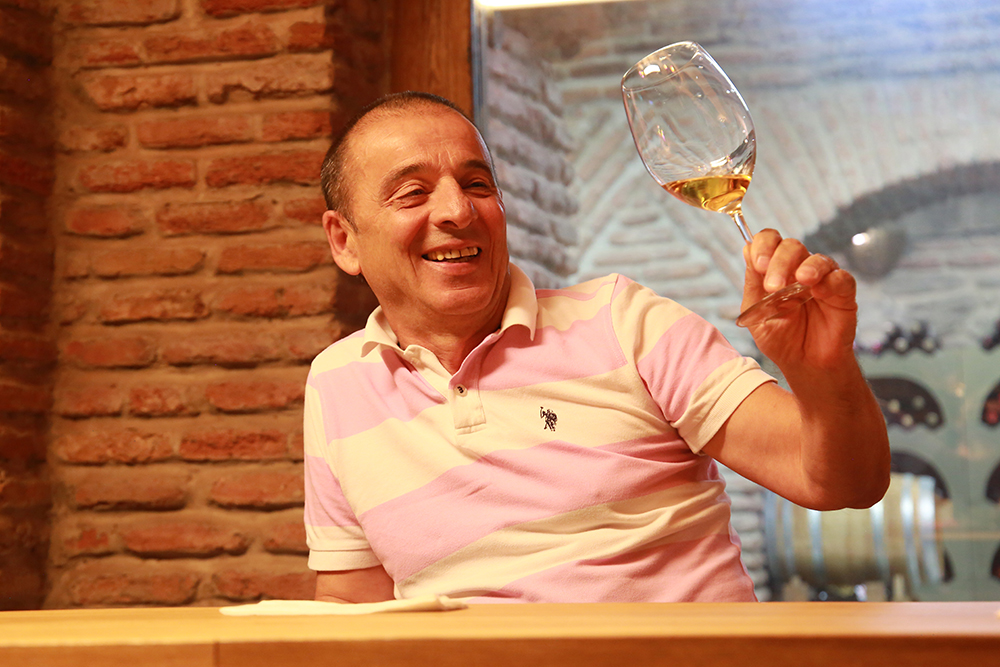
Zaza Jakeli: We are not winemakers in a classical sense. We were not influenced by stereotypical, theoretical knowledge. My brother, Malkhaz Jakeli, and I realized that producing unique and natural wines would differentiate us from more prominent producers. The word “natural” harbored a lot of opposition back then. Even to this day, we are looked at “differently.” But I think that each type of wine, including the natural one, has its place, and the only evaluators are our customers: you know you are producing good, stable wine when your demand exceeds supply by a large margin. We were the third winery in Georgia to receive the bio certificate, but I would have to agree with Mr. Kurdadze the certificate does not define the wine. I have also tried many non-bio wines that I immensely appreciated.
We built 5 hectares of Saperavi in Khashmi back in 2001. In those days, we used French barrels to make our wine. I remember Isabelle Legeron being very surprised by this. “Why are you putting this magnificent wine in barrels?!” she asked. We have so many stories like this one. Maybe one day, I’ll even write a book telling the main story of how we started.
Everyone likes our wines because it is natural, which means that the wine maintains the real, aromatic taste of organically grown grapes.
In the beginning, there were only 10 of us that produced natural wines and supported each other. It gives me immense joy to see so many people interested in this process today, including the younger ones. We were much older when we started. Today, I would describe my work as Bohemian – I live in a marvelous place in Kakheti, and each day spent here is filled with joy. We frequently host guests, hold tastings. It is an endless source of positive emotions. We are blessed to receive guests that know wines and can appreciate the good ones.
Nukri Kurdadze: The more educated the population is, the more they know about wine and consequently the more they enjoy it. This is reflected in global studies that show a direct correlation between the country’s level of development and wine consumption.
Zaza Jakeli: Georgian consumers are learning more about wines and becoming interested in good wine, which is good. I am especially pleased when locals from different regions visit our winery. Just recently, we received a group of winemakers from Racha. It was such a pleasure and joy to host them. This is what I live for. I go over to Nukri from time to time to exchange ideas and emotions. To think that we became winemakers! It’s astonishing. We just put our minds to something, tried it, and it worked. People still joke about me, saying I play music for qvevri. Well, I do. Because, as the saying goes, “you get what you give.”
Initially, I started with Saperavi, and added white wine in 2015. I took a 10-year lease on a bio vineyard and entered into a competition with my Saperavi. I sort of challenged myself and my capabilities. As Nukri and Misha said, you always have to be independent in your decision-making. I have Sauvignon Blanc and Riesling growing in my backyard. Some might not understand why when there are so many good Georgian varieties. But, I am very interested in how these varieties will perform in qvevri.
Misha Dolidze: I think the reason each one of us came to this industry was to surprise ourselves, seek novel approaches, and inspire others. Nukri and Zaza spoke about the soil, vineyard, variety, wine cellar, and technologies. I would say the same: we bought an empty plot of land in Vachnadziani and grew varieties, such as Mtsvivani and Chitistvala. People would say to us: “Why are you growing varieties that you will never be able to sell?”. But our motivation was to try something different. We continue experimenting to this day, and it is the most gratifying process.
Irma Chanturia: As I said, these wineries have individual characters. And we (“The wine laboratory”) value it a lot. When even a few of them meet, their communication is immensely captivating – they exchange ideas, share their experiences. It’s a philosophy, and we need to share it with the consumer as much as possible.
Nukri Kurdadze: We are not the first or the last ones to be trending right now. Georgian wine is sought-after and popular, but let’s look at New Zealand’s example: Georgia has an 8000-year-old history of winemaking; New Zealand started producing wines in the 80s. But despite this, their wines are top-rated and even cost more than wines from the new world. New Zealand has surpassed its peak and has since stabilized. The same happened with Argentina. Georgian wine is at its peak right now, and no one knows how long it will last. Now is the time to put in the most work because once it is in decline, we will not be able to do anything. We should use this time to pay more attention to vineyards and their quality.
Irma Chanturia: Regulations regarding vineyards and grape conditions are on their way, which should further stabilize the process. Some farmers harvest record amounts of grape (which is a problem in itself), but they can never make good wine out of it. These farmers will have the hardest time adjusting to regulations on vineyards that the government was forced to implement. Then there is the crucial matter of vineyard cadasters.
Considering all of the above, I think we will have a good Rtveli (harvest) this year, with balanced quality and quantity. It will have a positive impact on smaller wineries that manage to level their quantity and quality. New regulations will also result in the price increase of their wine.
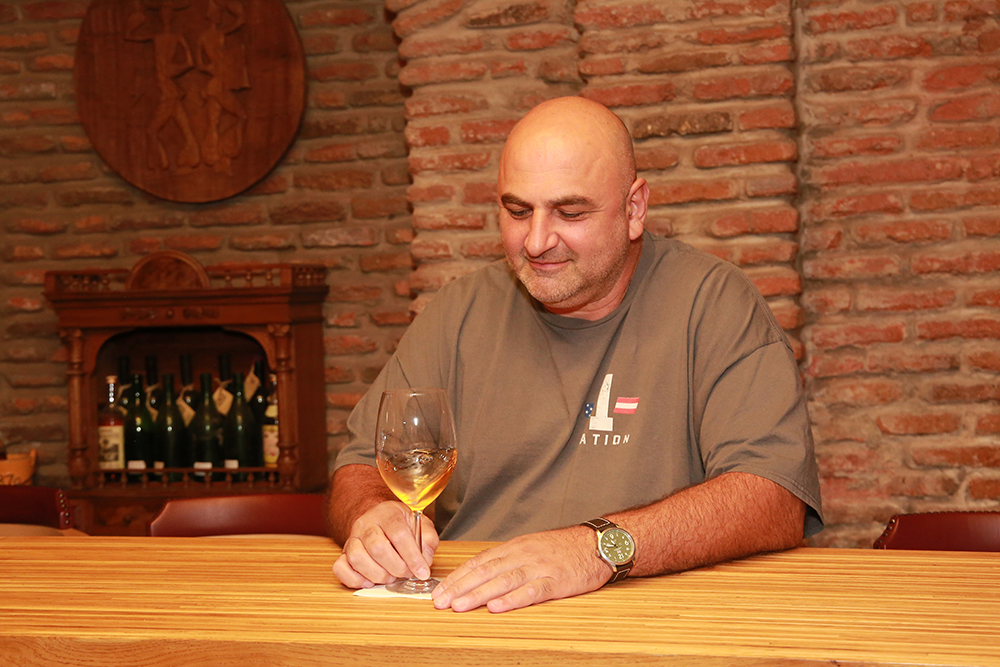
Misha Dolidze: At times, sharing the experience that Mr. Jakeli, Mr. Kurdadze, and other winemakers of this class have acquired is more important than government regulations. If we look at it from a 100-year perspective, associativity is more sustainable than government inspection/regulations. I wish we could meet more often and think about and agree on the principles that would help us maintain the highest quality.
Nukri Kurdadze: Let’s take the example of Bordeaux or even Bourgogne winemaker association – they have such a strong unity and control quality with extraordinary vigor. Associations and unity are paramount, and our society needs to recognize and accept it.
Zaza Jakeli: France is indeed a great example.
Nukri Kurdadze: Yes, it is the only country where they legitimatized natural winemaking. The 15 natural winemakers who were the first to start this movement demanded that the process be regulated by law. Now, the grape has to have a bio certificate for the winemaker to be considered a natural winemaker. These winemakers were the ones that offered and even compelled the government to implement regulations. The same law is now discussed in the European Union.
Irma Chanturia: We also have to address qvevri. Our ancestors used this vessel when they started making wine, and our contemporaries still use it. Qvevri already has the status of geographical indication, which will improve the quality of the vessel and make pottery, an ancient Georgian profession, a once-again desirable craft and set specific standards for it.
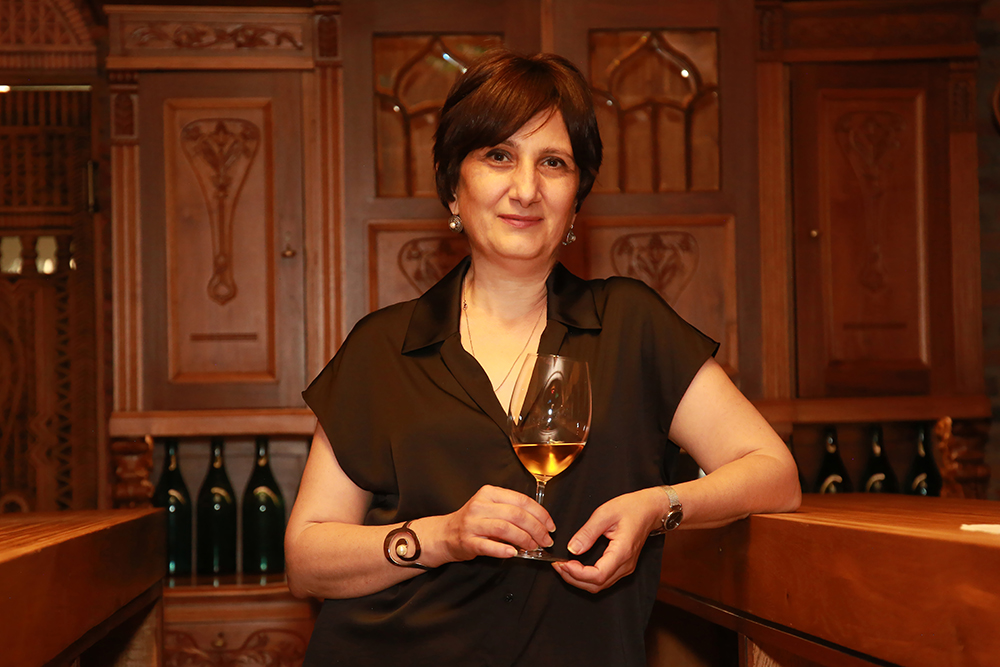
Misha Dolidze: It would be great to see qvevri production advance. However, the issue of qvevri maintenance is also fundamental. Hygiene is one of the crucial matters in natural winemaking. We implemented a standard qvevri cleaning protocol in our wine cellar – a set of chemical, thermal and mechanical processes that alternate. We also use a quartz lamp (we brought it to winemaking from the medical industry). We have a total of 27 qvevri, and their maintenance takes considerable effort. Therefore, it is essential to have the highest quality qvevri initially.
Nukri Kurdadze: When we talk about the “technology of qvevri wine,” we must mention the following: I spent a considerable amount of time in archives during my time abroad. In these archives, I read the descriptions of 19th century qvevri wines. My main discovery was that there was no unified style and technology for making qvevri wine – even in Kakheti. Occupation of the last century destroyed Georgian society and impacted everything else, segregating the production of Georgian wine: nobles made their wine their way, farmers made it their way. Wines produced by wealthy farmers differed from wine produced by poor farmers. Merchants, vintners – all produced in their own way. In the 20s of the 19th century, a class of innovative Kakhetian winemakers (noble winemakers) left an important legacy that has disappeared today. I was inspired by one of the methods and started using it in my winery. The wine of that time was very individual; the approach to qvevri was different. For example, the Dadiani family had a cascading cellar to keep their qvevri away from moisture. That’s why I say we should never put ourselves inside a box. This is the richness of Georgian wine – every winemaker has their findings. A single detail can make good wine.

